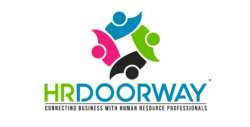Several significant megatrends are reshaping the HR role today, requiring HR leaders to upskill to keep up with the pace of change. That’s according to Dieter Veldsman, chief HR scientist and organizational development specialist at the Academy to Innovate HR, who spoke Thursday at the Elevate People, Ignite Change (EPIC) conference in Las Vegas.
These global influences are already molding the future of work, giving HR a glimpse of how the landscape is going to continue to change, said Veldsman during his EPIC presentation, Unlocking the Future of HR: Navigating Megatrends, Adaption Imperatives and New Skillsets.
Veldsman outlined actions HR leaders can take to both keep up with and get ahead of the changing nature of their work.
Veldsman pointed to four trends most impacting the HR function: the changing composition of the labor market, a scarcity of resources influencing an organization’s effectiveness, technology advancements impacting the future of work design and employees’ changing relationships with work and employment.
“There will be new models of HR,” Veldsman said.
Source: Academy to Innovate HR (AIHR)
Changing labor market composition
Employees are working longer and postponing retirement, resulting in a wider multi-generational workforce. This will have specific implications for how HR manages these employees, Veldsman says.
Increasing scarcity of resources
Employers are increasingly facing limited pools of skilled talent, says Veldsman. For example, a study done by Adecco found that 92% of business leaders think Americans aren’t as skilled as they need to be to accomplish their jobs, and the problem is poised to worsen. In the next five years, 44% of workers’ core skills will have to change, Veldsman says.
Emerging technology advancements
Veldsman says Gen AI is already driving higher-quality, faster work processes for users. However, HR is hesitant to adopt some of these new technologies proactively. The hesitancy comes from HR’s lack of confidence and inexperience around these technologies, he adds, as well as concerns around their ethical use.
Transforming work and employment relationships
Many HR leaders believe employees want to make a social impact with their work when they demand meaningful and purposeful employment. However, employees are actually looking to perform work that matters to the organization and that gives them a sense of where their contribution fits into the company, Veldsman says.
In the last few decades, the HR function has shifted from personnel to human resource management to strategic human resource management, and—influenced by the megatrends Veldsman detailed—it is now heading to the digital human era, he said.
Dieter Veldsman, Academy to Innovate HR
This highlights HR’s need for upskilling. New CHROs do not feel fully prepared to step into their role because the required skill sets are suddenly completely different, Veldsman said. For instance, some CHROs are finding the need to step out of their functional domain and begin thinking like a product manager: If HR were a product, would employees pay money to buy it, become repeat customers and make recommendations to others to use it?
At the same time, the impact of the HR role is extending. Today, HR’s influence also touches the board of directors and communities the organization serves, for instance, Veldsman said. As that stakeholder landscape becomes more complex, HR will have to adopt various personas to meet the needs of this broader ecosystem.
“We have to reignite HR. What we do matters,” Veldsman says. “We are uniquely positioned to bring people together for things that matter.”
If HR is going to operate in a new way, it needs to change the skills profile of HR professionals. In particular, Veldsman said, HR needs five core capabilities to succeed in the future of work:
- Understand your organization’s business
- Utilize data to drive an evidence-based practice
- Obtain digital agility beyond scaling technology and develop an experimental mindset
- Use people advocacy to focus on building cultures of wellbeing
- Develop execution excellence with a combination of leadership and specialist domain competencies.
Other steps HR needs to take include focusing on becoming more solutions-oriented, responsibly embracing AI into HR practices and models, reskilling to prepare for changing job requirements, making HR attractive as a career and building a global HR support community.
Despite this complexity, there has never been a better time to be in HR than today, Veldsman said. It’s a fast-growing profession and the changing scope of HR provides a lot of new opportunities on the horizon for meaningful and impactful work, he added.
– Dawn Kawamoto

